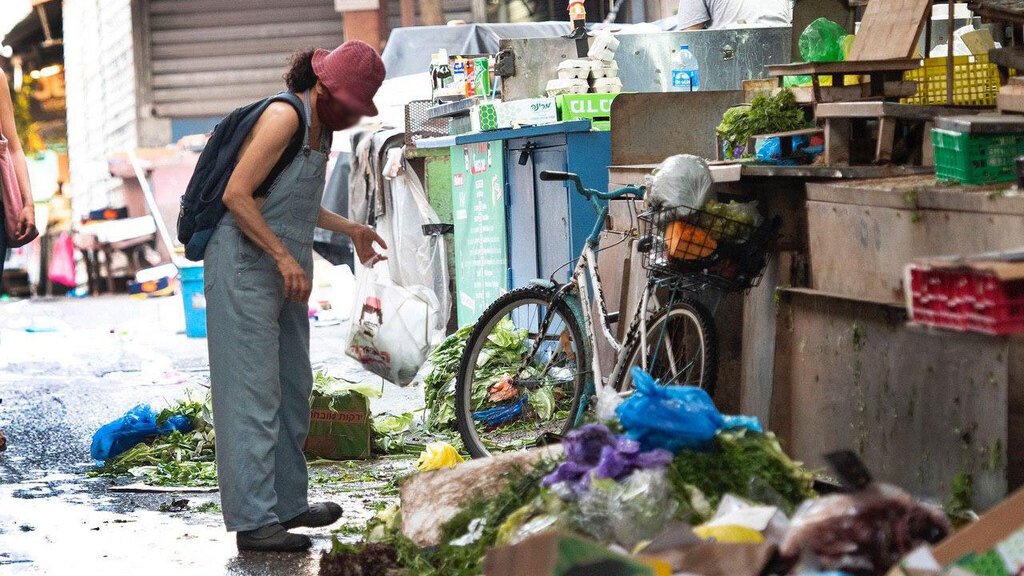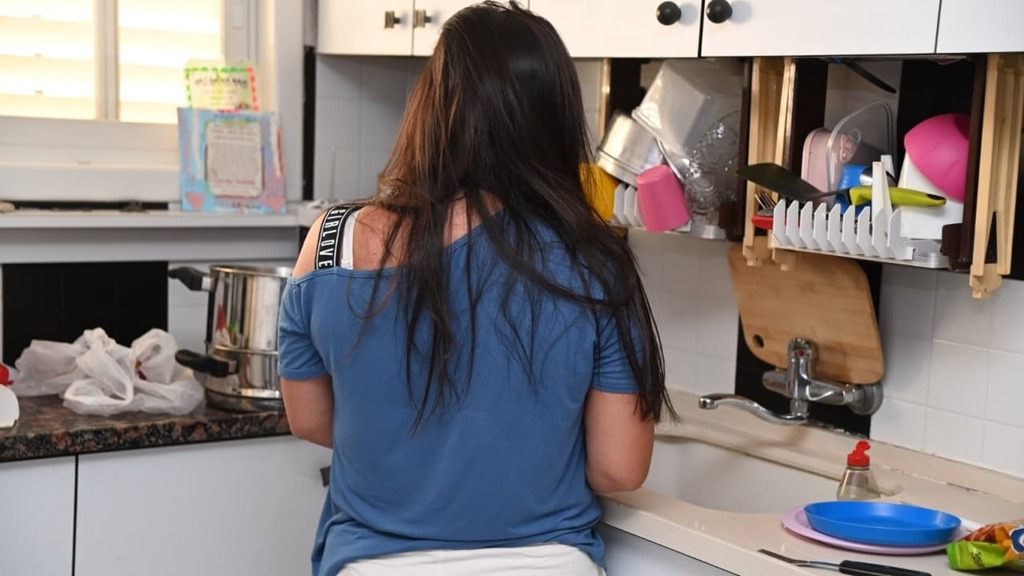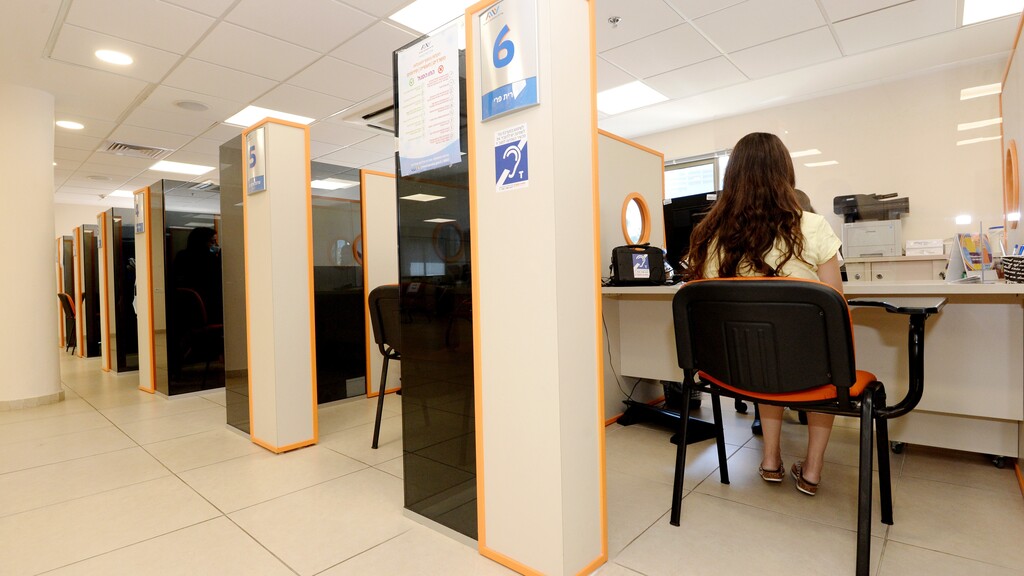Israel may be celebrating its successful response to the coronavirus pandemic, but for many Israelis, the economic impact has taken a heavy toll that is still being felt.
After repeated business closures, dwindling employment opportunities and the paltry economic aid offered during the crisis left many families who previously kept their heads above water suddenly finding themselves falling into poverty.
4 View gallery


An Israeli searches for food among the garbage at a market during the coronavirus pandemic
(Photo: Nadav Abas)
One person who was hit hard during the coronavirus is 47-year-old Tamara, a single mother of two daughters.
"I worked in sales in a large company and we lacked for nothing," she says. "We lived a normal life, I would buy [my daughters] whatever I wanted.”
But during the pandemic, Tamara was forced to enter isolation no fewer than seven times after her daughters were being exposed to verified virus patients at school.
The repeated bouts of quarantine eventually cost Tamara her job and now she relies on a meagre stipend from the state.
“The money I get from the state is not enough to support a household," she says.
"I am suffering severe financial anxiety. I pay for the upkeep of the house and there is no money left after that. It got to the point where I could not afford eggs to make an omelet for the girls,” Tamara says.
“Fruit is not an option, it is a luxury. I even stopped buying cheese for the girls' sandwiches."
Tamara says even now the pandemic is largely over in Israel, employment is still hard to find.
"The coronavirus has disrupted our lives. To this day I am still looking for work," she says.
"I want milk for my coffee but I can’t buy any. I have to think a hundred times about every shekel I spend. My daughter once asked me: 'Mom, when you get a salary can you buy me ice cream?’ I’m a healthy woman, I can work, but COVID has absolutely destroyed us.”
Avi, a 29-year-old father of two and his wife were also dealt a massive financial blow during the pandemic.
“My wife worked at a daycare center and was dismissed, and has been unable to find work for almost a year. I work part-time in communications but the salary is really low,” he says.
“We face a dilemma about each shekel. We choose the cheapest cheese, even if there is a difference of no more than a shekel. The thing that hurts me the most is the kids. They need food, diapers and toys. Every time we go to the market we are filled with dread,” he says.
Tamara and Avi are far from the only ones in this position.
A new report by the International Fellowship of Christians and Jews - a charity that helps Israel's needy - reveals a reality in which families living in post-pandemic Israel cannot afford even the most basic of products.
According to the report, about a quarter of the public is receiving assistance from associations or family members in order to be able to afford enough food.
4 View gallery


A woman putting a sign on a closed business in Tel Aviv showing Benjamin Netanyahu and the slogan 'Closed because of me'
(Photo: Moti Kimchi)
About a third of the public has said that they were forced to postpone payments such as property taxes, rent, and existing debts in order to afford food.
Nearly half of the public has said that their standard of living has dropped in the past year.
The report also shows that over the past year, 62% of the entire Israeli public were buying fewer dairy products due to price; 72% stopped buying fruit; and 65% were buying fewer vegetables.
“Fruit, vegetables and dairy products are basic and essential commodities that have become a luxury for too many Israelis,” says Fellowship CEO Michal Frank.
"The pandemic is almost over and most of us are relieved to be returning to the lives we knew,": she says.
"But it is important to know that not everyone managed to go back to their routine. There are tens of thousands of elderly and poor families who are still struggling to survive. We must make every effort to help them until they can make a decent living again.”



